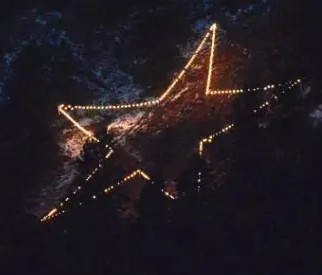- Crime Scene Drawings
- Evidence
- DNA UM1 Profile
- CoraFiles
- Horita's DNA/Bode Notes
- Drive-Stun Wounds
- FGG Policy
- Morrissey w/Silverman
- Dougherty w/Silverman
- Victim Rights Act
- Victim Shoes
- Ransom Note
- Autopsy Report
- Thomas Deposition
- JBRCE Timeline
- 911 Call
- Acronyms
- Body
- Body - Internal
- Body - Head
- Body - Neck
- Book List
- Burke Did It?
- Clothing
- Cords
- Cover Up?
- DNA/Blood
- Duct Tape
- Evidence Interpretation
- Fibers
- Foreign Faction
- Friends
- Intruder
- Intruder - Sex Offender
- Intruder - Sexual Predator
- Intruder - Aquaintance
- John Mark Karr
- Neighbors
- Patsy & John Killers?
- Patsy
- Pineapple
- Prior Abuse?
- Ransom Note
- RN Comparisons
- RN Interpretations
- RN Movie Comparisons
- RN Who Wrote It?
- Staging
- Stun Gun
- Worked for Ramseys
- Who is Who in the Case?
- pdf Library
Part 3. Steve Thomas Deposition
Q. (BY MR. WOOD) How many internal affairs investigations have you been the subject of? A. I believe just one. Q. When was that? A. In the early to mid part of 19 -- of the 1990s. Q. Was that Wheat Ridge or Boulder? A. That was with the Boulder Police Department. Q. Did that stem out of a shooting? A. No. Q. Or did it -- just give me a general idea of what it involved. A. An unauthorized vehicular pursuit. Q. And that's the only one, the only internal affairs investigation? A. That's right. The incidents that you refer to -- there was no further -- to be an internal affairs complaint there has to be a complainant and you mentioned the shooting incident, there was no complaint. Q. Is there any reason why the two-page report on Chris Wolf was in your book, why, for example, that was separated out from the other box of materials? A. No, I didn't say in my book. I said in a book. And this summer when I knew the Wolf case was pending, I was pleased to find that folded in half and stuck in a book. Q. What book was it stuck in? A. A book on my desk, on my library shelf. Q. Why were you pleased to find it? A. Because I knew I would be giving testimony in this case and it might help me recollect some of what I did four or five years ago. Q. You could also refresh yourself with some of the statements you made in your book about Mr. Wolf, couldn't you? A. Yes. Q. You recall Chris Wolf, don't you? A. Yes. Q. Am I correct that the Boulder Police Department conducted a thorough investigation of Chris Wolf? A. I'm aware and was a participant in the Boulder Police Department investigating Mr. Wolf, yes. Q. My question was though, sir, do you agree that the Boulder Police Department conducted a thorough investigation of Chris Wolf? A. I know what I did with my involvement with Mr. Wolf, but I don't have personal knowledge of what the detectives who subsequently closed him out as a suspect did to satisfy themselves. Q. Well, take a look, if you would, at page 273 of your book. MR. DIAMOND: For the record, do we have the hard cover? MR. WOOD: Yeah, this is a hard cover. Q. (BY MR. WOOD) 273 and this is just in context apparently on an incident you're describing that occurred on February the 25th of 1998, with Mayor Bob Greenlee. Do you know Mayor Greenlee? MR. DIAMOND: Can you point to where you are, at the top of the page? MR. WOOD: Just hang on a second, pay attention, you'll get there. Q. (BY MR. WOOD) In context do you recall the February incident with Mayor Greenlee about Chris Wolf? A. I don't recall the date being a specific date in February but I certainly recall meeting with Mr. Greenlee, yes, about Chris Wolf. Q. Look at the top of page 273. If you would follow with me, quote, We need to check this out, the mayor snorted. We need a thorough investigation into this. End quote. "I guess he wanted me to cower in his presence. Greenlee trapped himself, not me." Quote, We are thoroughly investigating him, end quote, "I replied. Even as we spoke, Chris Wolf was in an interview room voluntarily giving handwriting, hair and DNA samples and a statement." Have you followed me? A. I have followed you. Q. Have I read that correctly? A. Yes. Q. So it was your understanding that the Boulder Police Department was thoroughly investigating Chris Wolf, true? A. Yes, even contemporaneous with my exchange with the mayor on that particular day. Q. And the investigation of Mr. Wolf had started back in January of 1997; is that right? A. Yes. Q. How did -- how did Chris Wolf first become a suspect in the JonBenet Ramsey murder investigation, Mr. Thomas? A. Through a citizen informant. Q. And who was that citizen informant? A. Jackie Dilson. Q. Tell me your recollection of what Jackie Dilson did that resulted in Mr. Wolf becoming a suspect in the Ramsey murder investigation. A. I participated in a meeting with Jackie Dilson in which she offered an account with some dubious issues on the front end. She offered a piece of physical evidence that was exculpatory to Mr. Wolf. There were questions surrounding her stability and mental condition. Nonetheless, we investigated Mr. Wolf over a period of approximately 12 to 15 months, during which time Ms. Wolf's – MR. DIAMOND: Ms. Wolf? A. I'm sorry, Ms. Dilson's accounts grew increasingly suspicious by way of making admissions and information known to us in a less than timely fashion. And then continuing to supply information that became increasingly void of credibility, including linking Access Graphics and Lockheed Martin in some conspiracy involving arms sales to "Third World countries and Chris Wolf planting by way of this conspiracy somehow a stun gun video inside the Ramsey home. Additionally, she tried to implicate Mr. Wolf in other crimes, including another homicide, and another individual or team of detectives were assigned to attempt a different tact with Mr. Wolf and were successful in gaining his compliance and cooperation, and I was made aware that they subsequently internally cleared him from involvement in the Ramsey matter. MR. DIAMOND: Before you ask him the next question, may I have a minute with the witness? MR. WOOD: If we note on the record the time and it's not charged against us. VIDEO TECHNICIAN: The time is 10:17. We're going off the record. MR. WOOD: We don't have to go off the record. VIDEO TECHNICIAN: Oh, never mind. We're still on the record. MR. DIAMOND: Go ahead. Q. (BY MR. WOOD) Had you completed your answer? A. Yes. Q. Now, if I am hearing you, you gave me kind of a general overview of the Chris Wolf matter as pertains to Jackie Dilson that apparently she came to you as a citizen informant, the Boulder Police Department, provided information and then as that information was investigated, apparently you, perhaps others, felt that it was not necessarily credible and had suspicions about it as it pertains to Jackie Dilson, am I right? A. If you're asking me were there questions about Jackie Dilson's credibility, yes. Q. But you didn't know that the first day you met her, I mean you accepted on face value the information and you followed up on it to investigate Mr. Wolf, true? A. No, no, other detectives and myself who were present at that immediately had serious questions about her stability and credibility. Q. But not so much so that you did not follow up on it, true? A. We followed up on dozens of such suspects who came to us by way of citizen information. Q. We know it is true that Chris Wolf was a Boulder Police Department suspect in the JonBenet Ramsey investigation, right? A. You used the word suspect. That was always an issue inside the police department who would and wouldn't be on this proverbial suspect list. But as we sit here today, certainly he, among many others, I considered a suspect in the case. Q. And you later learned that the district attorney's office viewed Mr. Wolf as a suspect, true? A. True in that, after the fact, I came to learn that they were conducting some investigation that I had been previously unaware of. Q. It is clear from your involvement that Mr. Wolf became a suspect in the JonBenet Ramsey murder investigation as a result of Jackie Dilson, true? A. Yes. Q. Several months later, it was several months after January of 1997 before any information was provided by the Ramsey -- John and Patsy Ramsey's investigators to law enforcement about Mr. Wolf; is that true? A. I'm sorry, give me that time line again, Mr. Wood. Q. Yeah, several -- if this helps any at all as I understand it, and you may tell me you don't know or you may agree with me, Steve Ainsworth started looking into Chris Wolf in August of 1997. Does that coincide with your recollection? A. No. Q. When do you think Steve Ainsworth began to look at him? A. June of 1997. Q. Okay. Subsequent to that, the Ramseys' investigators began to provide some information to the district attorney's office about Mr. Wolf; is that your understanding? A. I have no personal knowledge of what the Ramsey investigators were or weren't doing. Q. They didn't provide you with any information about Mr. Wolf, did they? A. Me personally, no, not that I'm aware of. Q. Are you aware of any information that the Ramsey investigators provided to the Boulder Police Department about Mr. Wolf? A. I can't speak for others, but certainly none came to me directly. Q. You were operating from the standpoint that you were following up on Ms. Dilson's information and developing and investigating that information and any leads or other areas that your investigation might take you with respect to Chris Wolf, true? A. Mr. Wolf, if I understand it correctly, if you're asking me if I was following up on information that Dilson was -- Q. Mr. Wood. That's okay. A. I'm sorry, Mr. Wood, that Ms. Dilson was providing regarding Chris Wolf, yes, I was doing that. Q. You said when she first came to you she provided you with a piece of exculpatory evidence. What was that? A. From a pillow case, Ms. Dilson produced a length of rope that was immediately visually inconsistent to the persons present with the murder ligature in the homicide case. Q. Well, now how is that exculpatory. You're saying it wouldn't be incriminating but how does it as a piece of evidence prove to be exculpatory of Mr. Wolf? A. It may be a choice of words on my behalf but she did not produce us -- or produce any physical evidence that incriminated him. There was nothing that she produced that evening by way of physical evidence that included him in the running, so to speak. Q. That would be a better way of phrasing it than to say it was exculpatory, wouldn't you agree? A. I won't quibble with you on that, Mr. Wood. Q. I don't want you to quibble with me. I want you to tell me whether it's a more accurate statement that the evidence that she presented to you with respect to the rope did not incriminate Mr. Wolf, but nor did it prove to be itself exculpatory of Mr. Wolf, is that accurate? A. Okay. True, sure. Q. Okay. Tell me about the first time you had a chance to meet Mr. Wolf, what you recall about that. A. On a particular date in January of 1997, shortly after Dilson's information, we had Mr. Wolf brought into the police department in which we had a rather unpleasant exchange and little or no information was obtained from him at that time. Q. Was his conduct at that time what you would characterize as suspicious? A. Everything depends on context but he was not, certainly not cooperative. Q. Well, didn't you ask him to write certain words that were from the ransom note found in the Ramsey house? A. Yes. Q. And didn't he refuse to do so? A. Yes. Q. That certainly was not consistent with innocence, was it? A. Sometimes I've found that a lack of cooperation like that may not be any more indicative of guilt than a cooperative person who turns out to be guilty. Q. So someone's refusal to cooperate with you by either agreeing to an interview or submitting to a handwriting exemplar is not viewed by you necessarily as being indicative of guilt, true? A. It's not evidence. Q. Well, you said, I believe, that you have found that a lack of cooperation like that may not be any more indicative of guilt than a cooperative person who turns out to be guilty; is that right? A. Yeah, in response to your question. Q. So let me put it in the terms that you put it. It is not evidence of guilt by simply refusing to cooperate with the police by either agreeing to an interview or submitting to a handwriting exemplar, true? A. Are you reading back to me my statement or your question? Q. I'm asking you a question. Don't worry about what I'm reading; I'm asking you a question. A. Repeat the question for me, please. Q. It is not evidence of guilt on the part of someone who simply refuses to cooperate with the police by either agreeing to an interview or submitting to a handwriting exemplar, true? MR. DIAMOND: If that's what he said that doesn't make sense. A. I have lost you one more time, Mr. Wood. Q. (BY MR. WOOD) You don't understand the question? A. No. Q. An individual who is not cooperative and does not agree to a police interview or agree to a police request to provide a handwriting exemplar, that refusal to cooperate is not evidence of that individual's guilt, true? A. I would agree with that. Q. Thank you. A. In that context. Q. In what context? A. We're talking about Mr. Wolf here. Q. Well, I was talking about any individual. A. Then repeat the question to me, please. Q. An individual who is not cooperative and does not agree to a police interview or agree to a police request to provide a handwriting exemplar, that individual's refusal to cooperate is not itself evidence of that individual's guilt, true? A. That is not evidence you can take to a judge in an affidavit, certainly not. Q. Not evidence of guilt? A. Not evidence in a courtroom, as I understand it. Q. Okay. The -- there is the use of the word hobbled, do you know what that means? A. In the context of police work? Q. Yes. A. Yes, sir. Q. What does that mean to hobble somebody? A. When you have a violent or a physically resistive or combative individual or suspect who you cannot otherwise control, the hobbling procedure, as I understand it, beyond handcuffs behind the back include restraining the ankles and legs through the use of what is called a hobble. Q. When you first met Chris Wolf and had this incident you have generally described for us, did you have to hobble him? A. I think I was involved in that personally. He was hobbled before he was transported to jail. Q. Who helped you hobble him? A. There were other officers present and I don't know that -- I can't speak for Gosage but if I participated, and I may very well have, there were other people present, including I think a Detective Whiten, a traffic sergeant, Detective Chromiak, maybe some uniform people. Q. Why did you all have to hobble him? A. Because he was physically uncooperative and resistive. Q. How did you hobble him? In other words, you said it is always putting handcuffs behind the back and restraining the ankles and legs. Is that the standard technique? A. Yes, that's my -- Q. One way to do it? A. -- that's my recollection of how he was hobbled that day. Q. Would he let you take a picture of him? A. No. Q. Did you get any information from him in terms of being able to get answers to any questions? A. As was the case with most of the interviews, I'm sure there's a transcription that will bear it out, but I don't recall, as we sit here today, what information we may have gotten from him in that interview room that particular day. Q. Do you know if you got any? A. As I sit here now, I don't know that we got any information from him that day, maybe beyond the name, rank, serial number type of personal information. Q. Do you know how it came to be that he was stopped by the Boulder Police Department and brought to the office? A. I do. Q. Tell me about that. A. The confidential informant in this case -- Q. That's Ms. Dilson? A. Ms. Dilson. Q. Okay. A. Wanted to remain confidential as she had some concerns. And in attempting to maintain her CI status, we used a ruse with some information that she had provided us about Mr. Wolf's driving record and had him stopped and picked up legally on that basis. Q. Why did you want him to provide you with a handwriting exemplar from the Ramsey ransom note? A. Because when information came into the Boulder Police Department suggesting as in this case as detailed as Jackie Dilson made it appear, someone's possible involvement in this homicide, we had to have some sort of initial screening process that was done on scores of people where you try to obtain non-testimonial physical evidence to see if there was anything linking a particular individual to the ransom note or the crime, as well as a preliminary interview and/or alibi confirmation. Q. You didn't on -- in January you did not get a preliminary interview with Chris Wolf, right, tried but failed? A. That's right. Q. Didn't get a handwriting exemplar, right? A. That's right. Q. Didn't get any non testimony -- testimonial physical evidence from him, did you? A. No, sir. Q. He really, short of not cooperating and becoming violent sufficiently that he had to be hobbled, you really weren't able to conduct any type of an initial screening process on Chris Wolf in January of 1997, true? A. True. Q. And then it was 1998, February of 1998, when you were finally able to get him to provide non-testimonial evidence? A. As I said earlier, I'm not real sure of the date or it being February but I'll -- Q. Take a look at your book; it may be helpful in that. 271, the bottom of the page. "On February 25th the mayor chewed me out." Does that help you? A. Sure. Q. Okay. A. I -- Q. So in February of 1998, that's when the Boulder Police Department first obtained non-testimonial evidence from Chris Wolf, hair sample, DNA sample, and handwriting exemplar, right? A. To my knowledge, yes. Q. What was his alibi? A. Well, as I mentioned earlier very briefly, after this difficult encounter with Mr. Wolf by Detective Gosage and myself, it was determined at some level to attempt a different tact at gaining his cooperation. And so they put Detective Weinheimer, possibly others, on to that lead and they took it from there. And I don't know, I don't have any personal knowledge of how they wound up coming to the determination that he was cleared other than letting the others in the investigative team know that he had been sufficiently cleared. Q. You don't know on what basis? A. I don't. Q. You don't know what Chris Wolf's alibi was? A. I do not. Q. Chris Wolf has indicated to us that he was never asked to take a polygraph exam. Do you have any factual information to dispute that? A. I don't have any knowledge of that. Q. If Jackie Dilson said Chris Wolf lived with her and that I believe she woke on the morning of the 26th of December and he was coming out of the shower and that his clothes were dirty, do you recall that being information provided by Ms. Dilson? A. Yes. Q. If that were his only alibi, that is to say, well, I was at home with Jackie Dilson who I lived with at the time and Jackie Dilson who he lived with at the time came to the police with suspicions that he might have been involved in the murder, wouldn't you ask Mr. Wolf to, as you say, sit down on the box, get on the box and take a polygraph exam to see how he did on that alibi? A. Certainly. There are many people in this case I would have liked to have steered toward the box. Q. I'm asking you about Mr. Wolf. Wouldn't that be standard procedure with an alibi that is related only to being with the person who thinks that you may have been involved in the murder that you would say, well, Mr. Wolf, if that's your alibi that you weren't out that night let's put it -- put you on a polygraph exam and see what you say; wouldn't that be standard procedure? A. Certainly in some departments but it had been my experience that the Boulder Police Department had never embraced and had no policy, that I'm aware of, in place regarding polygraphy. Q. So there was no standard practice in the Boulder Police Department about when to seek a polygraph examination from a suspect? A. For example, in other departments who have in-house polygraphers. Q. Well, I'm asking you about the Boulder Police Department? A. I'm trying to get to that. Q. Let's get to that for me, if you would, please. MR. DIAMOND: Let him finish. A. Regarding the Boulder Police Department, there was no in-house polygrapher and it didn't appear to me that there was any sort of a policy in place, although I personally favored the use of polygraphs in some cases. In which to -- and how it was necessarily applied, we certainly were able to polygraph some other potential suspects in this case but I don't know that Mr. Wolf ever was. Q. (BY MR. WOOD) You don't have any basis to dispute his statement that he was never asked to take a polygraph, do you? A. No. Q. And do you -- are you aware of any efforts by the Boulder Police Department to ever obtain Mr. Wolf's computer and the hard drive from his computer to have it analyzed as part of its thorough investigation? A. If I recall correctly, Jackie Dilson early in this investigation of Mr. Wolf had volunteered to me that she would supply me with items belonging to Mr. Wolf, bed sheets, underwear, writings, et cetera, and I explained to her that she could not act as an agent on behalf of law enforcement. And she may have volunteered the computer equipment you mentioned. Q. But you didn't accept her offer? A. I couldn't. Q. Because you thought it would raise questions of chain of custody and admissibility? A. Not because I thought so. Because that, if my understanding is correct and I think the legal advisor and even Hofstrom, you can't have a private citizen act as an agent on your behalf to circumvent a search warrant. Q. Well, you couldn't -- you could test the material and gain potentially valuable information even if that information might not be admissible in court, couldn't you, sir? A. I wasn't trained that way in the least. And I know from dope work, you can't use a citizen to act as your agent. Q. So if Jackie Dilson walks in and says here is a piece of evidence, here is a rope -- A. Sir. Q. -- did you tell her, did you say wait a minute, I can't take that rope from you, Ms. Dilson? A. Very different. Q. How is that different -- A. Here we -- Q. -- her offering to bring you articles of clothing or his computer? A. It's my understanding, and here is the difference, is she volunteered evidence on the front end without any prior knowledge on our behalf, which is acceptable, according to our in-house legal advisor. But when an individual makes it known to you as a detective that they would go out and seek to gather evidence on your behalf and bring that to you for testing, that's entirely inappropriate. Q. Did you have after Mr. -- based on Ms. Dilson's statements to you and Mr. Wolf's actions when you had him brought in under the ruse, did you have probable cause at that time in your view to obtain a search warrant of Ms. Dilson's property to obtain items of evidence to be analyzed? A. As a matter of fact, I went to Mr. Hofstrom, at the time the chief trial deputy in the DA's office, and this was just one of scores of examples in which we needed the power of the DA's office either through warrant or preferably grand jury subpoena to secure evidence. And during the course of, it's been my experience, during the course of '97 and '98 received certainly no grand jury, but very little support from Mr. Hofstrom in the DA's office and in this case made my Detective Sergeant Wickman aware of our inability based mostly on the DA's office reluctance to move forward further investigating Wolf at that time. Q. Thank you. My question was, did you have in your mind probable cause sufficient to obtain a search warrant of Ms. Dilson's residence to obtain items of evidence based on the information she had provided to you and the conduct of Mr. Wolf when you had him in the office under the ruse? MR. DIAMOND: Did he conclude then or are you asking him to look now in hindsight? MR. WOOD: I think my question is extremely clear. MR. DIAMOND: Reread it, please. Q. (BY MR. WOOD) I would be glad to do it. My question was, did you have in your mind probable cause sufficent to obtain a search warrant of Ms. Dilson's residence to obtain items of evidence based on the information she had provided to the department and the conduct of Mr. Wolf when you had him in the police department under the ruse. Did you think as a police officer that you had probable cause to get a warrant to get these items and property? A. I understand the question, Mr. Wood. Q. Okay. Thank you. What is the answer? A. The answer is one of the items that I or anyone else would have relied on to put within the four corners of a warrant affidavit did not include any physical evidence and would have been based almost soley on the information provided by an unreliable, mentally unstable informant. And I would have had -- I don't know that I would have put forth my name on a search warrant affidavit and taken it to a judge based solely on Jackie Dilson's information. Q. I didn't ask you that. I asked you based on Jackie Dilson's information and Mr. Wolf's conduct when you had him in the department under the ruse? A. Well, I'm not making my answer clear obviously to you. Q. I don't think you are but maybe I'm not understanding it. A. No. I'm saying I did not have sufficient facts and circumstances to put in a warrant affidavit. Q. When did you conclude that Jackie Dilson was unreliable and mentally unstable? Did you conclude that on the first meeting with her? A. Yes, Mr. Wood. And I suggest you read that transcript and the comments of the other detectives walking out of the office that night. It was -- she had, God bless her, mental health problems. She's on medication. She's an alcoholic and just was not deemed terribly reliable. But nonetheless, we chose to move forward with that information and look at Mr. Wolf. Q. Let me make sure I understand how the Boulder Police Department was working now. You were involved at this time specifically with Chris Wolf, right? A. Yes. Q. So if I understand you – MR. DIAMOND: Can he answer the question? A. At what time? Q. (BY MR. WOOD) You said yes, at this time in January of 1997 so here is what I understand. You, Mr. Thomas, as a detective of the Boulder Police Department took an individual that you decided in one meeting was on medication, was an alcoholic, was not reliable, had mental problems, was mentally unstable, and you set up a ruse to have a man brought into the Boulder Police Department to try to get him to give you a handwriting exemplar of the Ramsey note, to try to get his photograph, and then you hobbled this man based on an informant that you tell me today was an alcoholic, mentally unstable and unreliable; is that the way you did business with Mr. Wolf? A. She provided sufficient details that warranted looking further at Mr. Wolf. Q. So, I mean, you felt like you then did have a legitimate basis to investigate Mr. Wolf as a suspect in the case, even though you had some concerns about Ms. Dilson's reliability and mental status; is that a fair statement? A. As I just said, there -- she provided some sufficient details to look further at Mr. Wolf in this case. Q. So you felt like, then, that you did have a legitimate basis to investigate Mr. Wolf as a suspect in the case even though you had some concerns about Ms. Dilson's reliability and mental status; is that a fair statement? A. Yes. Q. Thank you. Back when you all had the June 1998 presentation that is referred to -- is that referred to as the VIP presentation? A. We can refer to it as that. Q. Did you ever hear it referred to as that when you had the VIPs there? A. I think so. Q. Let's refer to it as the June 1998 VIP presentation so we know what we're talking about. Did, in fact, the detectives during that presentation present a long list of suspects who had been considered and dropped, including Randy Simons, Kevin Rayburn, Bud Henderson, Linda Hoffman-Pugh, Joe Barnhill and Chris Wolf? A. I would certainly have to review any notes and reports from the police files on that, but that's not inconsistent with my recollection. Q. You recall then the presentation including a statement that Chris Wolf was a suspect who had been eliminated? A. No, that's not what I'm saying. What I am saying is I don't recall that -- there was a lot of information exchanged over two days at this VIP presentation. It very well may have been said but you asked me right now, I don't have that specific recollection about that particular individual.






















